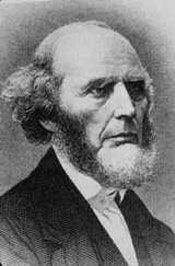“And so the first concrete thing Christians can do is simply be with each other convivially in conversation and prayer, cultivating relationships within which there eventually develops a space for talking about difficult matters like sickness, frailty, and death.” Joel Shuman and Brian Volck, M. D., Reclaiming the Body, pg. 137-138
Ten Reasons to Live in Community
1. God told you to.
Knowing that God has led you to this kind of life and these particular people is the most compelling reason to live in community. Following the leading of God is the most joyous thing we could ever do. Trust and obey, for there is no other way, to be happy in Jesus, but to trust and obey.
Every Christian is called to be a part of God’s community, the Church, but not everyone is called to live in intentional Christian community. For various reasons, it may not be appropriate or the right time for you to live in intentional Christian community. But it is always the right time to be united to God’s people in sincere, committed relationships no matter in what circumstances you find yourself.
2. To live out the gospel of the Kingdom of God.
Jesus introduced a new kingdom of healing, love and mutual liability. Intentional community allows us to walk out the “Good News” today. The world is watching to see if the Christian message can really be lived out (John 17:21).
3. Meaningful relationships can be developed.
Taking liability for one another has a way of building intimacy and creating relationships that matter. Fellowship = Two men in the same boat – “Fellow Ship” (Keith Green).
4. Great potential for personal growth in God.
As Larry Crabb said, “I can think of nothing more important for spiritual growth than good relationships in the Body of Christ.” (Inside Out, p. 165) We need God’s people to know us, love us and speak into our lives. Intentional community provides the environment for the real us to be known, the commitment to be secure and the proximity for sustained input.
5. A wonderful environment for children.
Children love community. Intentional community provides a pool of friends from families that share the same values, older brothers and sisters to look up to, aunts and uncles who love them and grandmas and grandpas who are around every day. The talents and character that a parent may lack is made up for by others in community. Children are exposed to a variety of perspectives, skills and interests that enrich their lives in ways that would never happen living outside community.
6. A richer and fuller life.
New hobbies, new ideas, new perspectives, new laughter, new purpose, new experiences, new resources, new vision, and new friends. Learning opportunities, serving opportunities, worship opportunities, growth opportunities, teaching opportunities, and relationship opportunities. You’ll never be the same.
7. Christian values reinforced.
We live in a culture drenched in values that are opposed to Christianity. Intentional Christian community strengthens and affirms Christian values, and surrounds us with living examples of how to practically apply those values in daily life.
8. Many practical opportunities to serve others.
All around you in Christian community are plenty of chances to bring Christ to others. Making meals for those who are sick, babysitting so parents can go out together, hanging curtains for the mechanically challenged, building hand-made furniture for one another, fixing shared vehicles, cleaning the home of new mothers, and so many other ways to serve. Also, we can join our resources together to meet the needs of the poor and needy around us and even for those in distant lands.
9. Provision for tackling the challenges of life.
“Rejoice with those who rejoice and weep with those who weep” (Rom. 12:15). A shoulder to cry on, medical advice, child-training tips, computer know-how, spiritual counseling, fellow bargain hunting, wedding planning, funeral planning, vacation planning, financial planning, conflict resolution, child education, adult education, lawn cutting, leaf raking, house painting…whew, and I probably left out 1,000 more things.
10. Preparation for heaven.
Get used to it. Heaven is an intentional Christian community (Rev. 21:1-4).
Relationship Theology

In a previous post I talked about the fundamental difference between non-Christian and Christian belief. I was trying to identify the key elements that differentiate a non-Christian and a Christian’s guiding philosophy. I broke it down into three main concepts: Selfishness versus Love, Mistrust versus Faith, and Desire for Power versus Renunciation of Power. These three models help us form a picture of what conversion consists of. Another step we can take to help us understand the Christian vision is to examine an idea called, “Relationship Theology.”
Relationship Theology is a way to interpret the truths of the Bible. It’s a paradigm or set of presuppositions we use for understanding the meaning of Scriptures. In other words, it is a lens to look through when considering Christian concepts. Relationship Theology teaches us to look at things from a relationship point of view rather than from a legal perspective. God is a person and His primary concern is to promote loving relationships. Man, being made in the image of God, is a person, too, and his happiness and ultimate meaning are only found in a right relationship with God and others. Relationship Theology makes these ideas central to interpreting the Bible.
One way to see the difference between a legal and relational paradigm is to look at how sin and righteousness are defined. In Relationship Theology sin and righteousness are defined in relationship terms. Sin “is not defined primarily as a legal infraction or in terms of transgressions that require punishment” (Pinnock and Brow 55). Sin is behavior that violates relationships. Whereas in a legal paradigm, the emphasis is on transgression and the breaking of law. “We disrupt the fellowship with God by trying to pursue our own interests rather than identifying with his will…therefore, sin is not primarily a state of corruption calling for manipulative satisfaction, nor guilt to be wiped out through punishment or satisfaction, but alienation from God requiring reconciliation” (Brummer 197).
Similarly, righteousness in a relational model, is seen as wholeness in relationships. Righteousness “includes that wide range of virtues which contributes to relationships among persons, and between persons and God, which are right and whole (healed). In short, righteousness describes the quality of relationships which characterizes life together in the kingdom” (Driver 65). Righteousness, in a legal paradigm, however, is defined as being blameless of breaking law.

When talking about conversion or salvation, in the Relationship Theology model, the emphasis is on the restoration of loving relationships (between people and God and with each other). In a legal paradigm, conversion is seen as a change in legal standing. Salvation comes as a pardon for breaking the law or offending the holiness of God. Justice needs to be satisfied and only punishment or pardon can acquit an offender. But in Relationship Theology, the concern is about removing the obstacles that block communion, not satisfying some nebulous concept of justice. Conversion is changing the way people are so that relationships can be restored. God’s initiative of love and sacrifice, most vividly put on display through the life of Jesus, provides the way for this change to take place. The book, play and movie, Les Miserables by Victor Hugo, beautifully illustrates this whole idea of legal versus relational redemption.
Thinking from this perspective we see that there are certain conditions that must be met in order for relationships to flourish. Selfishness, mistrust and domination damage relationships and hinder friendship. But love, trust and servanthood nurture relationships and encourage fellowship. In my previous post I showed how these traits mark the difference between non-Christian and Christian belief. The Christian vision is about right relationships and so the fundamental values that differentiate Christians will center around motives and actions that build relationships.
We can now see that the main difference between a non-Christian and a Christian has to do with his relationships (with God and others). The non-Christian, being supremely committed to his own welfare, is unable to fulfill the conditions necessary for relationships “which are right and whole (healed)”. Christians, on the other hand, having undergone a change of values, are in a position to develop and enjoy right relationships. Relationship Theology tells us that “seeing God as a parent is more fundamental than seeing him as a judge” (Pinnock and Brow 9). It shows us that relationships are what matter most and that the Bible’s story and message must be seen through “relationship glasses”.

Since the church is “a sign and agent and foretaste of the kingdom of God” (Newbigin 136), a kingdom where relationships are restored and people healed, “it is the task of those gathered together by God to live, to the extent possible, as citizens of the new age” (Shuman and Volck 31). Intentional community is a natural place to do this. In intentional Christian community we seek to live, as well as we can, the values of the Kingdom of God: love, trust and servanthood. Community is a welcoming place where we can be converted to the vision of God’s kingdom and learn to build relationships of love.
Reference and Bibliography
All scriputres quotes from The New American Standard Version. Lockman Foundation.
Pinnock, Clark H., and Robert C. Brow. Unbounded Love. Downers Grove: InterVarsity, 1994.
Brummer, Vincent. The Model of Love. Cambridge: Cambridge University Press, 1993.
Driver, John. Kingdom Citizens. Scottdale: Herald Press, 1980.
Newbigin, Lesslie. The Gospel in a Pluralistic Society. Grand Rapids: Wm. B. Eerdmans, 1989.
Shuman, Joel, and Brian Volck, MD. Reclaiming the Body. Grand Rapids: Brazos Press, 2006.
A Different Vision
I’ve been thinking about the fundamental difference between non-Christian and Christian belief. When I use the word “belief” I mean it in its radical sense, “To live in accordance with a truth.” One might say, “Christian practice”, “Christian orientation” or “Christian living”. What is so different about living in a Christian way? Besides the rituals and particulars to Christianity, I’ve wanted to identify the contrasting features of the Christian life. What are the guiding principles that control the behavior of a Christian?
The following is by no means a scholarly attempt at systematic theology, but a collection of some general ideas that have given me clarity about the fundamental vision of Christianity. I’ve taken these concepts from authors I’ve read over the years and tried to relate them to each other. I don’t necessarily agree with everything each of these authors teach, but I have found helpful their differing perspectives. I’ve grouped the fundamental difference between non-Christian and Christian belief into three main categories:
“Selfishness” versus “Love” (or “Living for Self” versus “Living for Others”)

This way of looking at things makes the difference between non-Christian and Christian belief center around what we supremely value. The non-Christian is ultimately motivated by his own interests in everything he does. His own happiness takes precedence over everything. Even though on the outward it may appear that he does things for the happiness of others, inwardly he is secretly motivated by his own well-being when carrying out his acts of kindness. Whereas the Christian, values everybody and everything according to their real worth and therefore doesn’t put his own happiness supremely above that of everyone else. He desires the happiness of others for their own sake, not because it will make him happy. It’s not that the Christian doesn’t want to be happy or that he doesn’t care about that, but that he doesn’t make his own happiness the ultimate goal in his life without regard to others.
A few scriptures come to mind:
- Luke 10:25-28 – Love God supremely and love your neighbor as yourself.
- 2 Cor. 5:15 – “and He died for all, that they who live should no longer live for themselves, but for Him who died and rose again on their behalf.”
- 1 Cor. 10:24 – “Let no one seek his own good, but that of his neighbor.”
- Phil. 2:3 – “Do nothing from selfishness or empty conceit, but with humility of mind let each of you regard one another as more important than himself.”
One of the main proponents of this model was Charles Finney, a nineteenth century evangelist credited with some of the most powerful and influential revivals in America. Some important quotes by Finney:
“[A] supreme regard to our own happiness is inconsistent with true religion.” (True Submission, p. 31)
“An individual who is converted is benevolent, and not supremely selfish. Benevolence is loving the happiness of others, or rather choosing the happiness of others.” (True and False Repentance, p. 32)
“[Repentance]…consists in the turning or change of the ultimate intention from selfishness to benevolence.” (Systematic Theology, p. 343)
“Mistrust and Autonomy” versus “Faith and Loving Submission” (or “Being Our Own Reference Point” versus “Truth Being Outside of Ourselves”)

This perspective on how non-Christians and Christians differ focuses on our relationship to God and reality. The non-Christian exercises ultimate confidence in himself and is governed by his own thoughts, values and judgment. He doesn’t entrust himself to God and creates his own standard to live by. He is independent from God, in other words, he is his own god. The Christian, however, supremely trusts God and happily embraces God’s direction and authority. He loves God and lives in communion with Him, believing in the goodness of His character. The law of God is the Christian’s delight because it reflects God’s fatherhood and loving leadership. The Christian sees his need to submit himself to reality rather than arbitrarily create his own.
Scriptures that teach this concept:
- Rom. 1:17b “The righteous man shall live by faith.”
- Proverbs 3:5 “Trust in the LORD with all your heart and do not lean on your own understanding.”
- Matthew 19:14 “But Jesus said, ‘Let the children alone, and do not hinder them from coming to Me; for the kingdom of heaven belongs to such as these.'”
- 2 Corinthians 10:12 “For we are not bold to class or compare ourselves with some of those who commend themselves; but when they measure themselves by themselves and compare themselves with themselves, they are without understanding.”
- Psalm 119:97 “O how I love Your law! It is my meditation all the day.”
While this model is so widely used in the Scriptures as well among Christian authors, it’s hard to attribute it to one person, but Watchman Nee has some excellent material on this:
“Before Adam and Eve ate the forbidden fruit their right and wrong were in God’s hand…By taking the fruit of the tree of the knowledge of good and evil, they found a source of right and wrong in other than God Himself. Consequently, after the fall men need not find in God the sense of right and wrong. They have it in themselves…The work of redemption is to bring us back to the place where we will now find our right and wrong in God.” (Spiritual Authority, p. 21)
“Because life is in Him, authority too is in Him. He is our life, therefore He has authority; and when we obey His authority, we have life.” (The Body of Christ, p. 25)
“The Christian life from start to finish is based upon this principle of utter dependence upon the Lord Jesus.” (Sit Walk Stand, p.12)
“Desire for Power” versus “Renunciation of Power” (or “Spirit of Domination” versus “Spirit of Servanthood”)

Looking at the difference between non-Christian and Christian belief through this lens highlights as a defining distinction the concept of power and our approach to it. As Jesus said, “You know that the rulers of the Gentiles lord it over them.” Non-Christians seek advantage over others and wish to wield influence and authority over them. This can be overt (through violence, position, wealth, etc.) or subtle (through manipulation, benefaction, obligation, etc.). The Christian, however, seeks to be the “servant of all” and takes no pleasure in “greatness”. He refuses to use coercion in his relationships and follows His Lord’s example who “did not come to be served, but to serve, and to give His life a ransom for many.” Sometimes this idea is referred to by the term “justice”, or the Greek word “kenosis”, roughly meaning “emptiness” or “powerlessness”.
Scriptures:
- Mark 10:42-45 Gentiles lord it over…greatest shall be servant…Son of Man came not to be served.
- Matt. 5:38-45 Do not resist him who is evil..love your enemies.
- Phil. 2:5-8 “Have this attitude in yourselves which was also in Christ Jesus, who, although He existed in the form of God, did not regard equality with God a thing to be grasped, but emptied Himself, taking the form of a bond-servant, and being made in the likeness of men. Being found in appearance as a man, He humbled Himself by becoming obedient to the point of death, even death on a cross.”
Again, we can hardly point to one exclusive group or teacher who promotes this idea, but I think many would agree that the Anabaptists have been on the forefront of these truths. John Driver, a Mennonite author, has been a favorite of mine:
“The person reached by the gospel of peace and made new by the power of God’s Spirit will not be able to tolerate with a clear conscience self-centeredness in any of its obvious or more subtle forms: a competitive spirit, undue desire for recognition, accumulation of goods, urge to dominate, tendency to discriminate. The Christian who dares to live the gospel of peace will be at odds with society.” (Community and Commitment, p. 78)
“The church as poor and the church giving good news to the poor are two fundamental coordinates of the Christian mission. Wherever the church is seduced by temptations to power, prestige, and property, it cannot communicate the gospel of the kingdom with integrity.” (Images of the Church in Mission, p. 80)
“The death of Christ is a model for what Christians do about enemies, evil powers, the temptation to dominate. The crucial problems of economic idolatry, desire for prestige, and the thirst for power all receive God’s answer at Calvary: generous self-giving sharing, servanthood, and love of enemies.” (Understanding the Atonement, p. 249)
All of these models add something to our understanding of what it means to be a Christian. When we talk about conversion, we mean that there is some change of mind and purpose towards life. In fact, to repent means to change one’s mind, or to turn away and to turn towards. These models help us to see what exactly one turns away from and turns towards. Being a Christian is to be converted along the lines of these models.
In a future post I want to talk about another model that actually combines many of these and is closer to reflecting a fuller Biblical message in my opinion. We call it “Relationship Theology.” I freely admit that I’m not a scholar, but I hope these reflections are helpful.
Reference and Bibliography
All scripture quotes from The New American Standard Version, The Lockman Foundation
Finney, Charles G. True Submission. Grand Rapids: Kregel, 1967
Finney, Charles G. True and False Repentance. Grand Rapids: Kregel, 1966
Finney, Charles G. Systematic Theology. Minneapolis: Bethany House, 1994
Nee, Watchman Spiritual Authority. New York: Christian Fellowship, 1972
Nee, Watchman The Body of Christ: A Reality. New York: Christian Fellowship, 1978
Nee, Watchman Sit Walk Stand. Fort Washington: Christian Literature Crusade, 1964
Driver, John Community and Commitment. Scottdale: Herald Press, 1976
Driver, John Images of the Church in Mission. Scottdale: Herald Press, 1997
Driver, John Understanding the Atonement for the Mission of the Church. Scottdale: Herald Press, 1986
The Importance of Art

It all started when I married an artist. My family wasn’t particularly devoted to the arts, although my dad is an incredible craftsman, and in the last twenty years has become a stained glass artist in his own right. So, when I looked outside I used to see a blue sky, brown earth and green trees. Imagine my shock when my wife, early in our marriage, told me that the sky has greens in it, dirt has blues and trees have pinks. We both had eyes, but she saw things I didn’t.
When we would walk along a forest path she would point out sounds, textures and smells I never knew existed. She introduced me to the world of birdwatching. I now can distinguish between the sound of a red-bellied woodpecker and the beautiful flute-like call of an oriole. I am able to associate those pleasant feelings I had as a child playing in wild fields, to specific sounds and smells of birds and flowers and bugs and herbs. I was blind, but now I see.
When our eyes are opened to beauty it transforms us. We are enlightened and softened. Life takes on more meaning and we begin to escape from stifling ignorance. That is why art is important. “The love of art guards us from returning to the lumpish masses of clay from which we were taken…Observing and enjoying art gives deeper meaning to our love of God and God’s creation, humanity. Art thus leads us toward God,” says Franky Schaeffer. I couldn’t agree more.
Here in our community we are committed to art. We teach it to our children and promote it to our adults. Everyone is an artist is some way. God, the Master Artist, has made us marvelously diverse and unique and put in each of us a magical spark of creativity. It might come out in poetry, painting, sculpting, computing, decorating, singing or gardening, and 1,001 other ways. We honor Him when we create beauty, and in a way it saves our own souls.
Wrong Doesn’t Equal Bad

The first mistake I made was to ask the girl behind the counter, “May I have a little more hot water?” I don’t know why I said, “little more.” I guess I was subconsciously trying to not be a bother. Well, she took me literally and gave me about an eighth of a cup of hot water. I then smiled and laughed and said, “I mean a whole cup.” She reluctantly filled the cup and handed it to me, gazing at me for my next move. As I reached for the airtight jar she snapped, “You need to pay for another bag.” Baffled, I innocently, but respectfully, stated that I thought there were free refills, pointing to the sign above our heads. Flustered, she mumbled something about that applying to the water, and then she quickly turned and walked away vexed.
Standing there, with the other patrons’ laser eyes focussed on me, I hesitated. Am I allowed to use another tea bag? Am I stealing if I take a bag? I’ll pay for it, but she’s gone now. What do I do? Scanning the room for someone who looked like a manager, I walked to the back of the store and asked a group of three official looking employees if I was allowed to get another tea bag. The manager, a smartly dressed woman in her mid 20s, apologized to me and confirmed that, yes, there are free refills for tea as the sign states. Relieved, more because I wasn’t an ignorant, greedy customer, than for the 95 cents I saved, I proceeded to get my bag and make my “Tea, Earl Grey, hot.” I couldn’t help but feel a kind of shame, like I was a pushy demanding customer, but mostly I felt bad for the girl who scolded me. Perhaps, she was now feeling like she made a big blunder, ruining her raise prospects.
All this got me thinking about a message I gave a few months back entitled, “Wrong Does Not Equal Bad.” The fact is that most of our learning is done by trial and error. We will throw a lot of bad pitches before we learn to throw good ones. We are often more wrong, than right. That’s just the way it is. We aren’t born with perfect knowledge. We learn by the braille method. It’s called experience. God has made us this way and it’s good. It doesn’t always feel good, but it is good.
The thing that blocks us, however, is our pride. We think that unless we perform flawlessly we will not be accepted. The truth is that humility is more attractive than pride. Someone who is at peace with themselves and does not need to defend their every word or action, but is willing to be corrected and admit their mistakes, is a great person indeed. It’s only the insecure that need to be right all the time.
Being wrong doesn’t mean you’re bad. It means you are in error, nothing more. You lack experience. Welcome to humanity. “For He Himself knows our frame; He is mindful that we are but dust.” (Psalm 103:14). Imagine how it would have been if that girl would have simply said to me, “Oh, you’re right. I’m sorry,” or, “Oh, I’m not sure. Let me ask my manager.” We both would have walked away feeling good.
Jesus told us that we must operate on a gracious frequency. “Forgive us our trespasses, as we forgive those who trespass against us,” He taught us to pray. He knew that we will often be wrong, which doesn’t necessarily mean that we’re bad.
Study

 As I mentioned in a past post, we’ve been reading Richard Foster’s book, Celebration of Discipline. This is a Christian classic. We’re reading through it together in our Sunday service. We’ll often go through a book together on Sundays. We take turns reading and stop to discuss the material. It really helps to do it this way because you gain different perspectives on the material that helps open up ideas that you never would have had reading it on your own.
As I mentioned in a past post, we’ve been reading Richard Foster’s book, Celebration of Discipline. This is a Christian classic. We’re reading through it together in our Sunday service. We’ll often go through a book together on Sundays. We take turns reading and stop to discuss the material. It really helps to do it this way because you gain different perspectives on the material that helps open up ideas that you never would have had reading it on your own.
Last Sunday we read from the chapter on study. Foster brilliantly presents compelling reasons to study. Even though I’ve heard these truths for many years, they have freshness and power. He presents four “steps” of study:
Repetition – “Repetition regularly channels the mind in a specific direction, thus ingraining habits of thought.”
Concentration – “Concentration centers the mind. It focuses the attention on what is being studied.”
Comprehension – “All of us have had the experience of reading something over and over and then, all of sudden, we understand what it means. This ‘eureka’ experience of understanding catapults us onto a new level of growth and freedom.”
Reflection – “…reflection defines the significance of what we are studying…In reflection we come to understand not only our subject matter, but ourselves.”
He then goes on to state, “It soon becomes obvious that study demands humility. Study simply cannot happen until we are willing to be subject to the subject matter.”
A Christian leader I knew years ago used to say that the mind is kind of like a candle. When you go to light it you have to hold the flame to the wick for some time until the wax melts and it finally catches. In the same way, we need to hold truth to our minds until it “catches”.
Speaking for myself, I haven’t tended to understand the truth or what God is saying until a lengthy process of repetition, concentration, and (often) failure transpired. I have a thick coat of wax. This is where community really shines. By living in such close proximity to one another, and having our lives so intertwined, the truth has many opportunities to stay focussed on my heart and mind until it can finally penetrate my thickness and catch me on fire.
“Make me Thy fuel, Flame of God.” – Amy Carmichael
Liturgy
We’ve been incorporating liturgy in our services these last few months. Only a few of us grew up in churches that used liturgy, so this is something new for us. Reading David Fitch’s book, The Great Giveaway, kind of pushed us over the edge to explore liturgy. We’ve been thinking about it for years, feeling a lack that spontaneous worship didn’t seem to fill. I was concerned that liturgy might stifle or turn into “legalism”. We don’t want a head religion detached from a sincere connection with God.
Listening to an interview from Vineyard with N.T. Wright on worship, helped to confirm to me that this was the right direction for us. Wright is a bishop in the Anglican church, which is a tradition that uses liturgy. He commented that spontaneity can be as limiting as a formal program and that liturgy allows us to learn how to pray and worship from great Christian saints from history. So, we’ve been slowly incorporating it into our services and meetings. It really has enriched us and is fun exploring a vast tradition that we’ve been missing out on. We still allow for the spontaneity and free flow of the Spirit, but now we also are being regularly mentored by God’s people from the ages.
Books
Some books we’re reading these days:
- Embracing Grace: A Gospel for All of Us by Scot McKnight
- Cruciformity by Michael J. Gorman
- Becoming Human by Jean Vanier
- The Great Giveaway by David E. Fitch
- Celebration of Discipline by Richard J. Foster
- Genesis: The Story We Haven’t Heard by Paul Carlton Borgman

Competition

We’ve been teaching the boys in our fellowship about competition and good sportsmanship. They all love sports and play enthusiastically whenever they get a chance. Their desire to win, however, can sometimes overshadow the importance of kindness. Good sportsmanship seems to be out of fashion these days and so there are not many examples of excellent athletes who demonstrate it to point to. Asked to define what good sportsmanship is, many people can only give a vague answer.
Good sportsmanship isn’t about wanting to lose or not keeping score. That’s silly. Good sportsmanship is fundamentally about one thing – who you are really competing against (yourself). What trips people up is the idea that in order to be somebody they have to be better than others. The problem with that is that there will always be someone better than you. Even Olympic gold medalists, who sometimes win only by hundredths of a second, can often be defeated on another day. It isn’t about being better than others, it’s about being the most you can be.
When competing against others, we need to see them as helpers. They help us by challenging us to improve. In a real sense, they are serving us and we are serving them. If they win, we can be happy that we played a part in their growth. If we win, we can rejoice in our improvement. Competition can be good if it’s used as a way to improve ourselves rather than to prove ourselves to others. Improve – good, prove – bad.
We’re all different, wonderful, and unique. Constantly comparing ourselves to others is a waste of time and energy, and more importantly, it’s destructive to our relationships. If I have a need to compare myself to you, I’ll either be insecure because you’re better than me in some way, or haughty because I am better than you in another way. This is a ridiculous game we need not play. Let us rest in our uniqueness and enjoy each other’s differences.